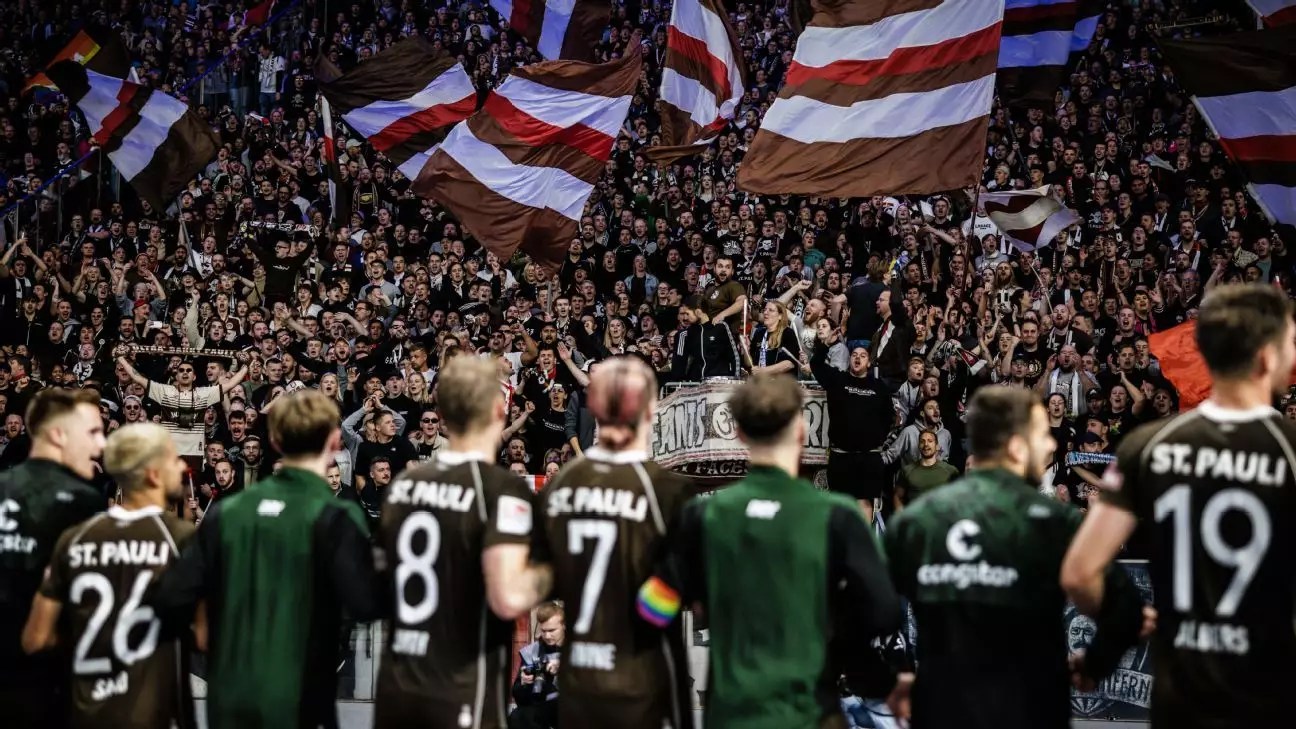The relationship between sports and politics has been a contentious debate, particularly among Anglo-American circles. Yet, a closer examination of the cultural tapestry within German football reveals a far different narrative—one where community, activism, and the spirit of egalitarianism converge vividly on and off the pitch. At the heart of this discourse is FC St. Pauli, a club that stands not merely as a participant in the Bundesliga but as a symbol of social activism and an embodiment of local pride in Hamburg.
St. Pauli’s uniqueness stems from its unwavering commitment to social issues that resonate deeply within its local community. Situated near the bustling Reeperbahn and the docks of Hamburg, the club thrives on the vibrancy of its environment. Known affectionately as the Kiezkicker or Neighborhood Kickers, St. Pauli has cultivated an image as a leftist football club—this is not just a randomly adopted marketing strategy but is woven into the very fabric of its founding principles known as Leitlinien. The club’s identity not only champions sportsmanship but underlines a fervent stance against racism, sexism, homophobia, and fascism, echoing the social justice ethos that defines the neighborhood it represents.
This commitment is not merely theoretical; it translates into visually apparent gestures. One stroll around St. Pauli U-Bahn station reveals an array of stickers and banners promoting messages like “Refugees Welcome” and “No One Is Illegal.” Such visuals reinforce the idea that St. Pauli is more than just a football team; it represents a movement rooted in activism that extends well beyond the confines of the sport.
Upon reflecting on St. Pauli’s rich history, one can trace its emergence as a platform for social activism back to the 1980s. During this period, a blend of alternative music, subcultures, and pressing social issues fueled the club’s transformation into a focal point for progressive politics. St. Pauli emerged as a counterbalance to the rising hooliganism rampant in European football, which was often interwoven with far-right ideologies.
By the 1990s, the club’s distinct persona began to crystallize with the adoption of its iconic skull and crossbones emblem, inspired by a local punk movement. This emblem, along with the energizing atmosphere at Millerntor Stadium, serves as a rallying point for supporters who feel a genuine connection to not only the team but the community as well.
Despite the struggles faced, such as relegations and financial hardships, St. Pauli has resisted the blandness of modern football’s corporate embrace. This vibrancy finds expression in their electrifying home matches—a sonic mosaic of music, chants, and heartfelt support that encapsulates the eccentric spirit of the club.
As FC St. Pauli faces off against titans like Bayern Munich, the spectacle is not solely a sporting event; it’s an occasion for celebration and solidarity. The match day atmosphere, filled with a mixture of excitement and nostalgia, reinforces the deep-rooted cultural ties between the club and its supporters.
The grassroots approach to football is particularly exemplified by player-manager relationships. For instance, Jackson Irvine, the club captain who embodies the values of St. Pauli, walks home to the Kiez after games, reinforcing the connection between the players and the community. Such acts by players make the sport feel grounded and accessible, allowing fans to relate to them beyond the pitch.
Moreover, St. Pauli’s cooperative model initiative, which empowers fans to have a tangible voice in the club’s future, sets it apart from the overwhelming commercialization seen in modern football. This model champions the idea of “one person, one vote,” making it a radical yet refreshing governance structure.
St. Pauli’s forward-thinking approach extends into its finances and infrastructure. By enabling fans to invest in the club while retaining a democratic voice, they carve out a path that actively resists the influence of wealth-driven ownership structures ubiquitous in football today. The potential profits from initiatives like the Genossenschaftsmodell can be utilized to eliminate debts and enhance training facilities—demonstrating a commitment to sustainable growth that prioritizes community over commercial interests.
As St. Pauli prepares for another landmark match, they are not merely competing for points in the Bundesliga; they are showcasing a model of how sports can interlace with activism, community spirit, and equality. With each whistle that blows, St. Pauli serves as a reminder that football can truly reflect the values of the society it represents—a celebration that resonates with audiences both near and far. In a divisive political landscape, their ethos stands a testament to the power of unity through sport, encouraging fans worldwide to embrace change through passion and community engagement.


Leave a Reply